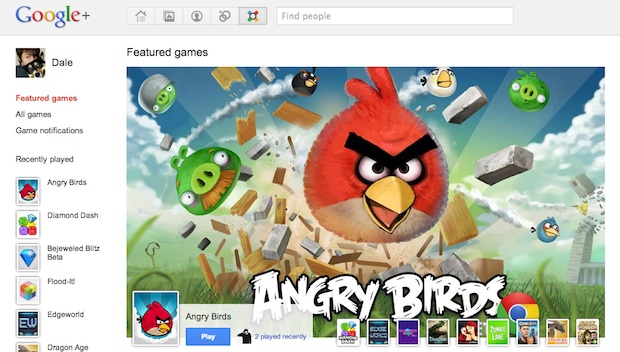MTN South Africa has once again emerged as the country’s top-performing mobile network, securing the highest score in the Q2 2025 MyBroadband Network Quality…
Gaming comes to Google+

Google has added games, including the hugely popular Angry Birds, to the fast-growing social network vying with Facebook to be the hub for people’s online lives.
Along with global game sensation Angry Birds, the initial array of offerings available at Google+ included Bejeweled Blitz, Zynga Poker, and Dragon Age Legends.
A standalone version of Crime City lets Google+ members play as a ruthless crime boss. A Facebook version of Crime City leapt to popularity after being released in September of last year.
Just hours after Google+ added games, Facebook touted a set of new features for playing online with friends.
“When you’re playing games, you’ll now see a separate stream of your friends’ game activity, scores and achievements in a ticker,” Facebook’s Jared Morgenstern said in a post late Thursday at the social network’s blog.
“The best way to find new games is through friends, and now you’ll have more opportunities to see what they’re playing,” he continued.
Facebook increased the screen size of games, and made it easier to bookmark favorite titles or adjust settings regarding which friends can see what is being played, according to Morgenstern.
Google is a latecomer to social networking, but its new site, Google+, has grown rapidly to more than ten million members since its launch on June 28.
While Google+ may be the fastest-growing social network ever, it remains to be seen whether it can pose a serious threat to the social networking titan Facebook, which has more than 750 million members.
Google has a billion users worldwide that could be drawn into the California-based Internet giant’s social network.
Games are among the most popular activities at Facebook, where social game startup Zynga rose to stardom.
Most Google+ users — 6.4 million — are in the United States, followed by India, with 3.6 million, Canada, with 1.1 million, Britain, with 1.1 million, and Germany with over 920,000, according to online tracker comScore.
In unveiling Google+, Google stressed the ability it gives users to separate online friends and family into different “Circles”, or networks, and to share information only with members of a particular circle.
One of the criticisms of Facebook is that updates are shared with all of one’s friends unless a user has gone through a relatively complicated process to create separate Facebook Groups.

